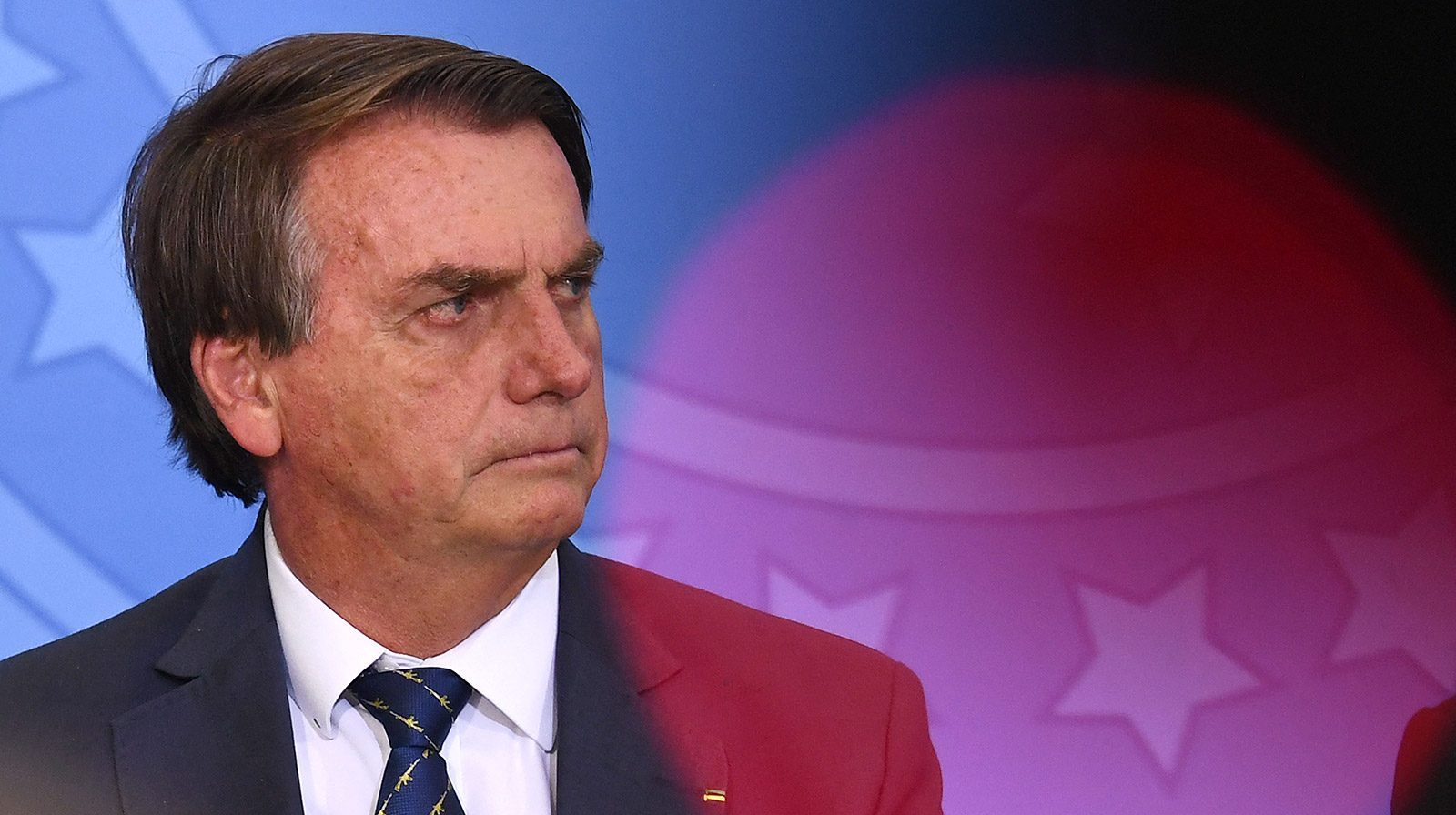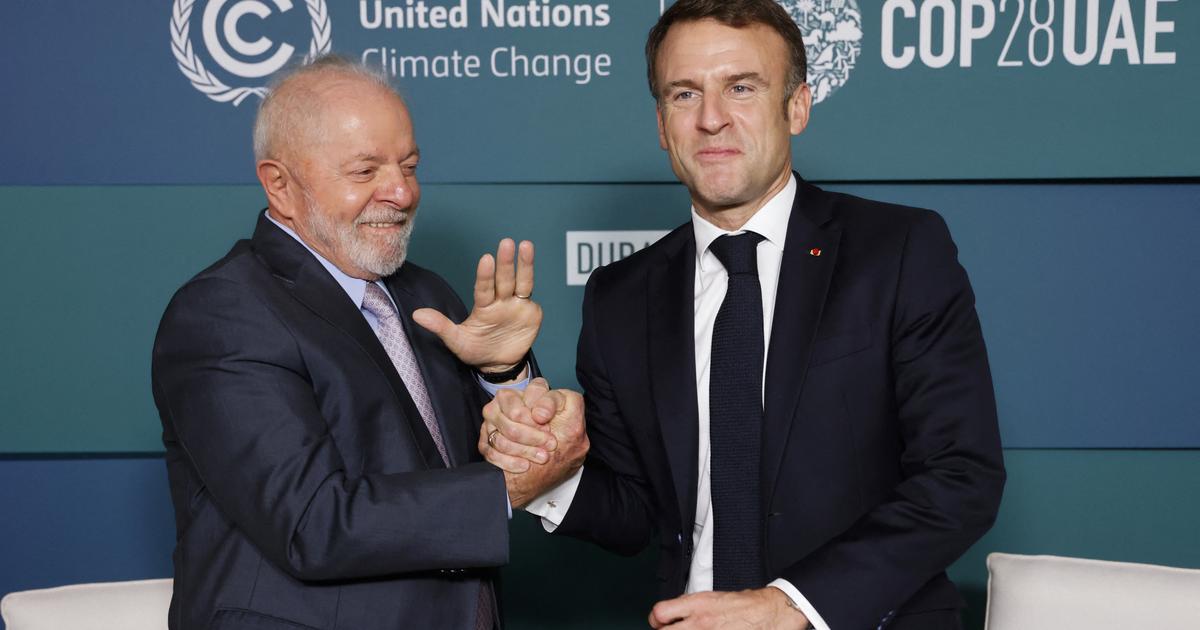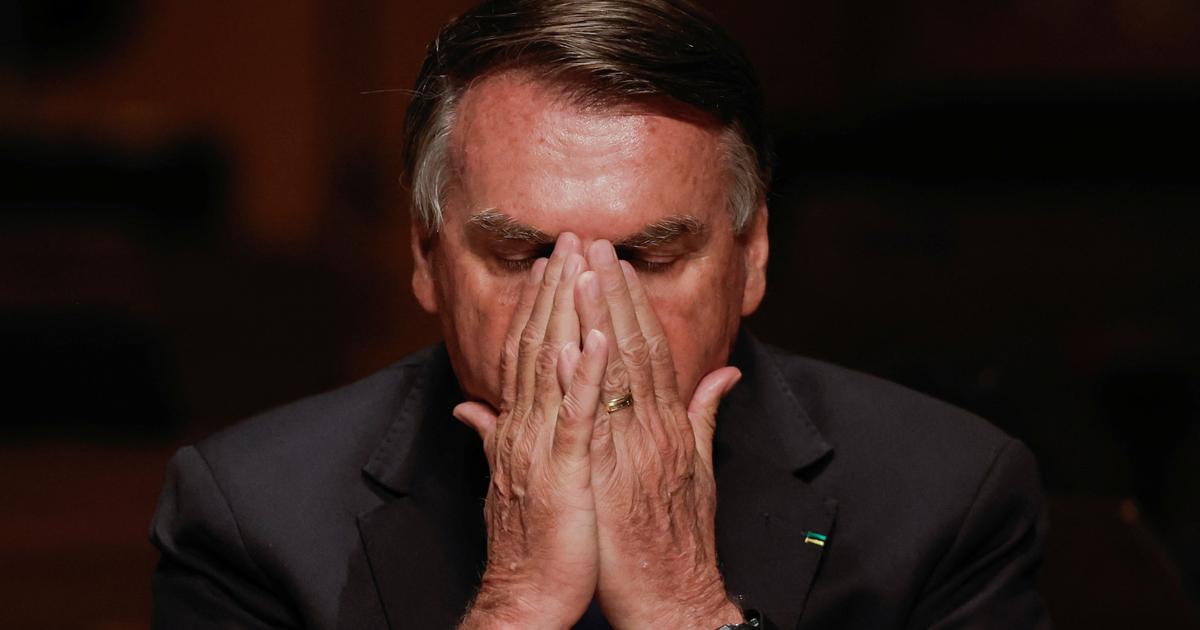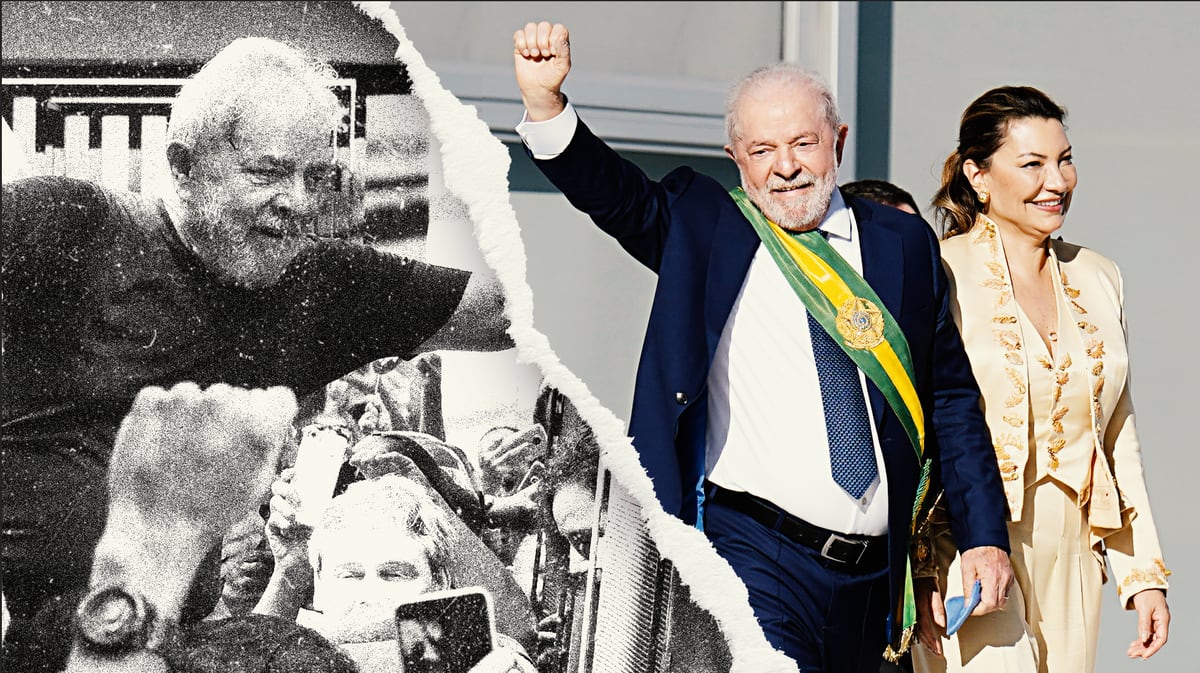Would Bolsonaro accept an electoral defeat against Lula?
0:45
(CNN Spanish)
-- The four years of Jair Bolsonaro's government in power have been plagued with controversy.
Provocations and scandals have become a trademark of the president, who this October 2 will bet on renewing his mandate for a new period, in elections that he will dispute with the former president and leader of the Workers' Party, Luiz Inácio Lula da Silva.
Those that have been considered by many as outbursts by the former Army captain and seven-time deputy for Rio de Janeiro between 1991 and 2018 seem to be more than isolated episodes.
Several experts consulted by CNN consider that Bolsonaro has made this the main milestones of his presidency, even going so far as to force them.
“That incendiary mode in Bolsonaro is a political strategy, and it must be understood as such.
It is very well thought out.
You have to remember that this is how he built his career.
It was gaining attention, it achieved interest through these attitudes”, says Lorena Barbería, researcher and full professor at the Department of Political Science at the University of São Paulo.
According to her, the president creates distractions to focus on things that really matter, such as reforms or privatizations.
"He creates that circus atmosphere to divert attention," adds Barbería.
More than as a strategy, Federico Finchelstein — an expert on populism and author of the book "From fascism to populism in history" — thinks that the outbursts "are part of the core of his ideology, which is essentially anti-democratic."
According to this historian, Bolsonaro is no longer a classic populist, but instead shares several of the elements with fascism.
"One of those elements is lies. Both he and (Donald) Trump are great liars. They lie outrageously, they are not just outbursts, but they make lies an instrument of propaganda. And they appeal to great lies to demonize what is different. ”.
advertising
In addition, the also professor at the New School for Social Research in New York affirms that the Brazilian president is not original, but rather "shares a style with (Viktor) Orban in Hungary, with (Javier) Milei in Argentina, with (Antonio ) Kast in Chile, even with (Giorgia) Meloni in Italy, who at the end of the campaign compared her last name to two melons, bringing them closer to her body, for example."
"The profane language, the violent rhetoric, the forms of a reactionary and exacerbated masculinity, even references to his genitals in public speeches, are all central elements of Bolsonaro's ideology," Finchelstein adds.
"An outburst is an exception, but in all these cases, it is about ways of doing politics."
However, the president of Brazil insists that he is a defender of democracy and the constitution.
Beyond what is happening in his country, Bolsonaro has spoken out on several occasions about what is happening in Cuba, Venezuela and Nicaragua regarding the rights and freedoms of opponents and democratic processes.
- The history of my government proves that we are always on the side of democracy and the Brazilian Constitution.
No houve, até now, no measure that demonstrates any kind of appreciation for authoritarianism, much to the contrary.
— Jair M. Bolsonaro 2️⃣2️⃣ (@jairbolsonaro) June 17, 2020
Here is a list of the most controversial episodes in the political career of the current president and candidate:
Covid-19 crisis
The beginning of the second year of Jair Bolsonaro's presidency was marked by the global pandemic of the new coronavirus.
From the beginning, Bolsonaro downplayed the severity of the virus, which he defined as a small cold, a "gripezinha", for which he himself, due to his status as an "athlete", would not worry in case of being infected, according to his own sayings. in local media.
Jair Bolsonaro with a mask against covid-19 on his face
A month later, on April 19, 2020, Bolsonaro went beyond rhetoric and participated in a protest in Brasilia, the country's capital, in which demonstrators called for an end to the covid-19 restrictions.
Some of the participants even demanded a military intervention to shut down Congress and the Supreme Court.
His attitude earned him a direct confrontation with most of the state governors, who are directly responsible for the restrictions taken with the aim of containing or preventing the spread of the virus.
“Many governors have closed everything.
They have destroyed jobs, especially informal ones.
We have around 38 million people in Brazil who live day to day, who work in the morning to eat at night,” he said.
"They have lost everything. If there was no emergency aid from the federal government, these people would be doomed to starvation."
According to data from Johns Hopkins University, Brazil has so far accumulated more than 34.6 million cases and some 685,000 deaths, which places it on the podium of the countries with the most infections and fatalities in the world, along with United States and India.
Incendiary statements against women, the LGBT community and minorities
Even before assuming the presidency, Bolsonaro stood out for his incendiary statements against women and the LGBTQ community.
In 2003, he told Congresswoman Maria do Rosário of the Workers' Party that she "didn't deserve" to be raped;
sayings that were reiterated by him in 2014. In 2019, by court order, the president had to apologize publicly.
His homophobic statements also caused a stir.
In an interview with Playboy magazine in 2011, he said that he would be unable to love a gay son, adding that he would rather his sons "die in an accident" than be homosexual.
On another occasion, he acknowledged: "I'm not going to fight or discriminate, but if I see two men kissing in the street, I'm going to hit them."
Jair Bolsonaro greeting his followers
In 2011, Bolsonaro spoke out on several occasions against the School without Homophobia program, which he called "the gay kit", a set of teaching materials against homophobia that was distributed in public schools for the educational purpose of protecting the LGBT community. .
His socially conservative line was also present in his campaign weeks ago, during his speech before the UN Assembly, when he stated: "Fundamental values for Brazilian society, reflected in the human rights agenda, are the defense of the family, the right to life from conception, self-defense and rejection of gender ideology”.
While he was a deputy, Bolsonaro made statements considered offensive and discriminatory against black communities, as reported by Agencia Brasil, stating, among other things, that these people were not even fit to procreate.
In addition, according to the same source, he has opposed affirmative action, such as quotas for black people in higher education.
In January 2020, on the occasion of the Amazon Council, he said that “the Indian has changed” and added: “Increasingly, the Indian is a human being like us.
So, let's make the Indian integrate more and more into society and really be the owner of his indigenous land.
This is what we want here.”
Defense of the possession of weapons and nostalgia for the military dictatorship
In May 2019, Bolsonaro signed a decree that relaxed gun controls, made it easier to import weapons, and increased the amount of ammunition that could be purchased per person annually.
Demonstration in favor of less gun control in Brazil (Credit: Sergio Lima / AFP)
Recently, during a campaign rally in Minas Gerais, the president said: “I want to tell the military police that (...) we have a government that believes in you and values you.
The government, with a new parliament, will obtain the exclusion of illegality so that they can work”.
According to the state-owned Agencia Brasil, the exclusion of illegality is, in practice, a legal guarantee for the police to act without the risk of being prosecuted for possible deaths in operations and confrontations.
In addition, the former army captain has stated on several occasions that he is nostalgic for the period of the military dictatorship, which held power in Brazil between 1965 and 1985.
environmental policy
Bolsonaro has frequently been criticized for doing little to protect the Amazon rainforest, including turning down $20 million in foreign aid during the G7 summit in France to help fight the 2019 fires.
Under Bolsonaro, the destruction of the world's largest rainforest has deepened, reaching a historic deforestation of the Brazilian Amazon rainforest in the first three months of 2022, the highest ever recorded: an area almost the size of Dallas. , Texas, according to data from the Brazilian National Institute for Space Research (INPE).
Meanwhile, some 700 public officials working in the environmental sector have been fired or removed from their positions since 2018, according to data from the Ministry of Economy.
In June of this year, indigenous expert Bruno Pereira and British journalist Dom Phillips were killed while conducting research in the Amazon.
Last year, deforestation in the Brazilian Amazon hit a 15-year record, according to INPE.
However, in early July, Bolsonaro signed a new decree establishing higher fines for deforestation, illegal logging, burning, fishing and hunting, which the government presented as "an important step in environmental legislation."
Experts viewed the move with skepticism, noting the advisability of his announcement just before his campaign for re-election as president.
Aerial view of a burned area in the Amazon rainforest, near the Lago do Cuniá Extractive Reserve, on the border of the states of Rondonia and Amazonas, in northern Brazil, on August 31, 2022. - Experts say that the Fires in the Amazon are mainly caused by farmers, ranchers and illegal speculators clearing land and burning forests.
(Photo by DOUGLAS MAGNO / AFP)
Sowing distrust in the electoral system
Similar to what Donald Trump has done in the US, Bolsonaro has cast doubt on Brazil's electoral system throughout his re-election campaign.
In particular, the president has groundlessly questioned the transparency of the electronic voting machines used in the country, which, paradoxically, are the same system by which he himself came to power.
Thus, the president insisted on the use of paper ballots, repeatedly stating, without presenting evidence, that the previous elections were rigged with electronic voting.
"We want trust and transparency in the Brazilian electoral system," Bolsonaro said at an event with heads of diplomatic missions in Brazil in July this year.
In addition, he added that his government is working to present a "way out" for this year's elections.
In response, more than a hundred organizations signed a manifesto in defense of democracy, which ensures that it "has shown successive signs of strength."
“(Democracy) is strengthened with the union, reforming what needs repair, not destroying;
adding hopes of a proud and peaceful Brazil, not subtracting them with slogans and divisions that threaten the desired peace and development”, says the document, quoted by Agencia Brasil and signed by business, non-governmental, union, professional and educational entities.
Three of Brazil's presidential candidates (from left to right) Luiz Inacio Lula da Silva (Workers' Party), Simone Tebet (Brazilian Democratic Movement), Jair Bolsonaro (Liberal Party) participate in the presidential debate before the general elections of the October 2 on the Bandeirantes television network in Sao Paulo, on August 28.
electoral effectiveness
Although the polls give his rival, Lula da Silva, an advantage, Bolsonaro will still have a chance if he manages to reach the ballot on October 30.
It will remain to be seen in the election performance how useful his fiery rhetoric and list of controversies among voters will then prove.
For Lorena Barbería they could be useful: “The outbursts are, in general, the product of a political calculation.
And of course there is a group of his followers who can be shocked by these speeches.
But there is another group that identifies with and enjoys the fact that he is politically incorrect, that he does things that many are thinking but do not dare to say or do.
With this, he seeks to convey an image of a common person, the one you meet in a bar and with whom you can talk;
a common Brazilian”.
In addition, the problem of electoral abstention stands out, which has been around 20% in the last elections, even though voting is compulsory in Brazil.
"Who are the people most likely not to vote? Probably those who feel intimidated by the climate of virulence created by Bolsonaro. In a more violent, more controversial or virulent environment, there will probably be more abstention of people who are opponents of Bolsonaro" .
With information from CNN's Taylor Barnes, Rodrigo Pedroso, Marcia Reverdosa, Caitlin Hu, Samantha Beech, Juliana Koch and Alaa Elassar.
elections in BrazilJair Bolsonaro


/cloudfront-eu-central-1.images.arcpublishing.com/prisa/N6V3GDEDQJGQZM3GUDXJW6YWNU.jpg)





/cloudfront-eu-central-1.images.arcpublishing.com/prisa/AVTEXOIT25JDRKNTQYQLLZ7NG4.jpg)
